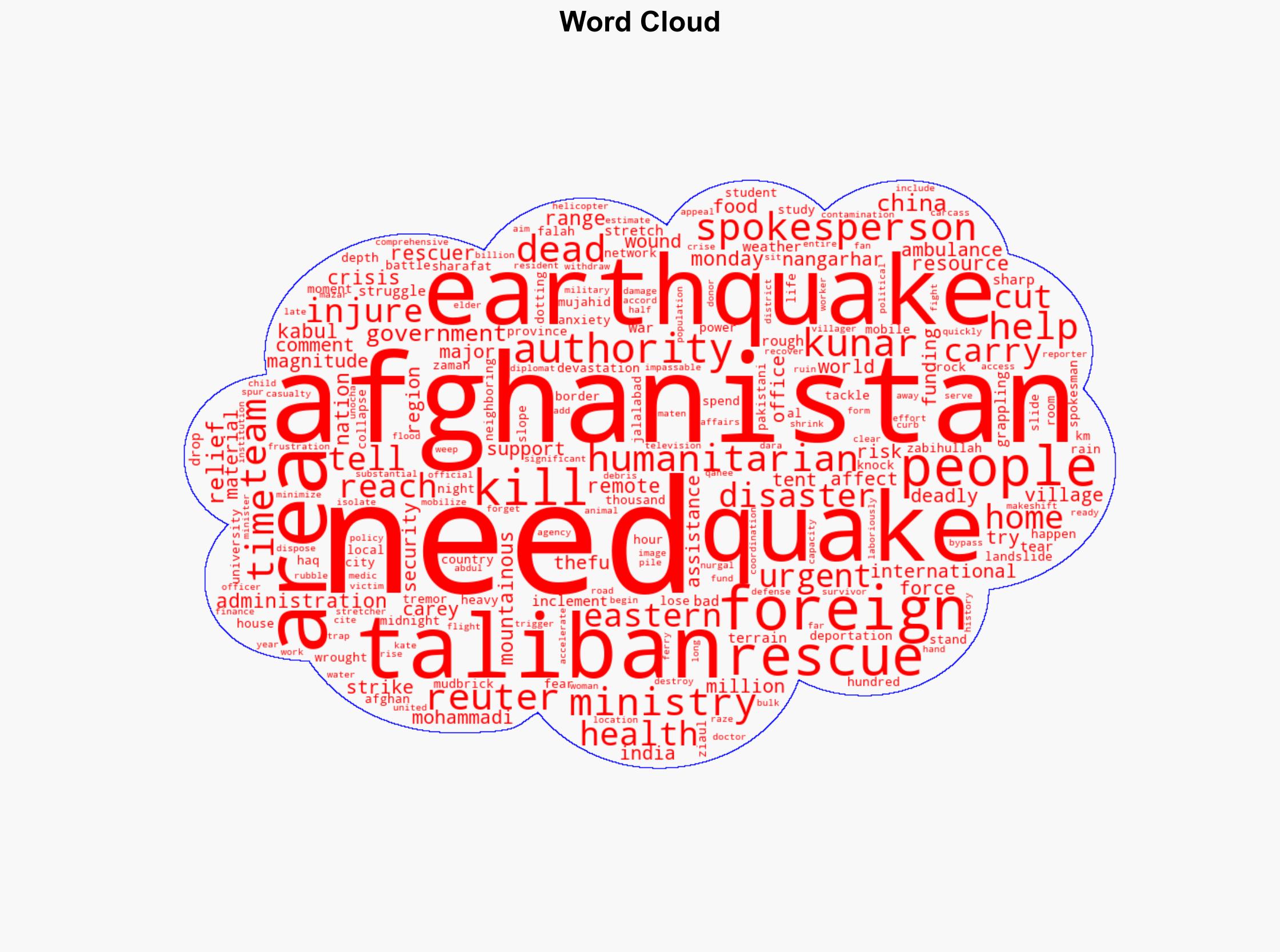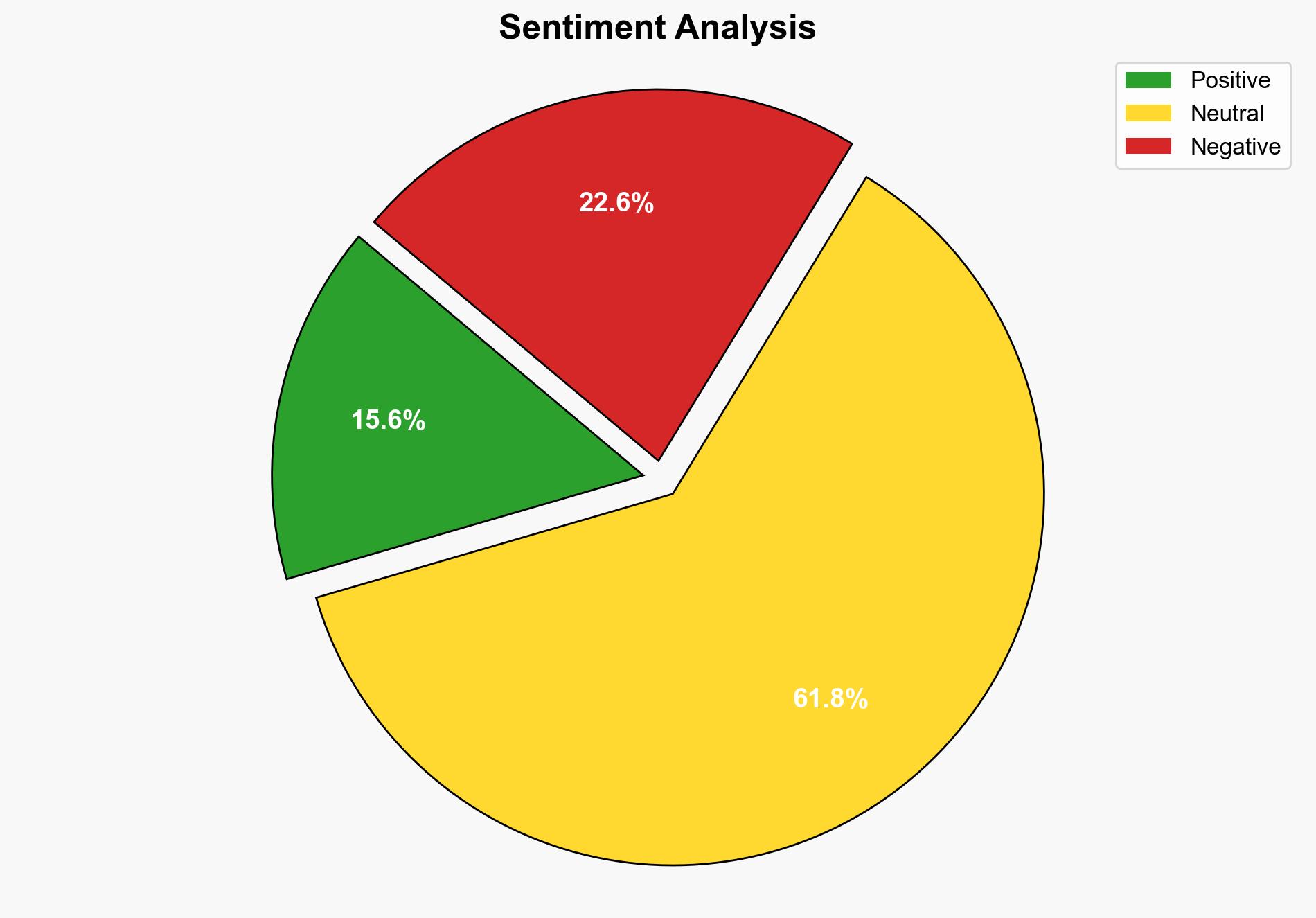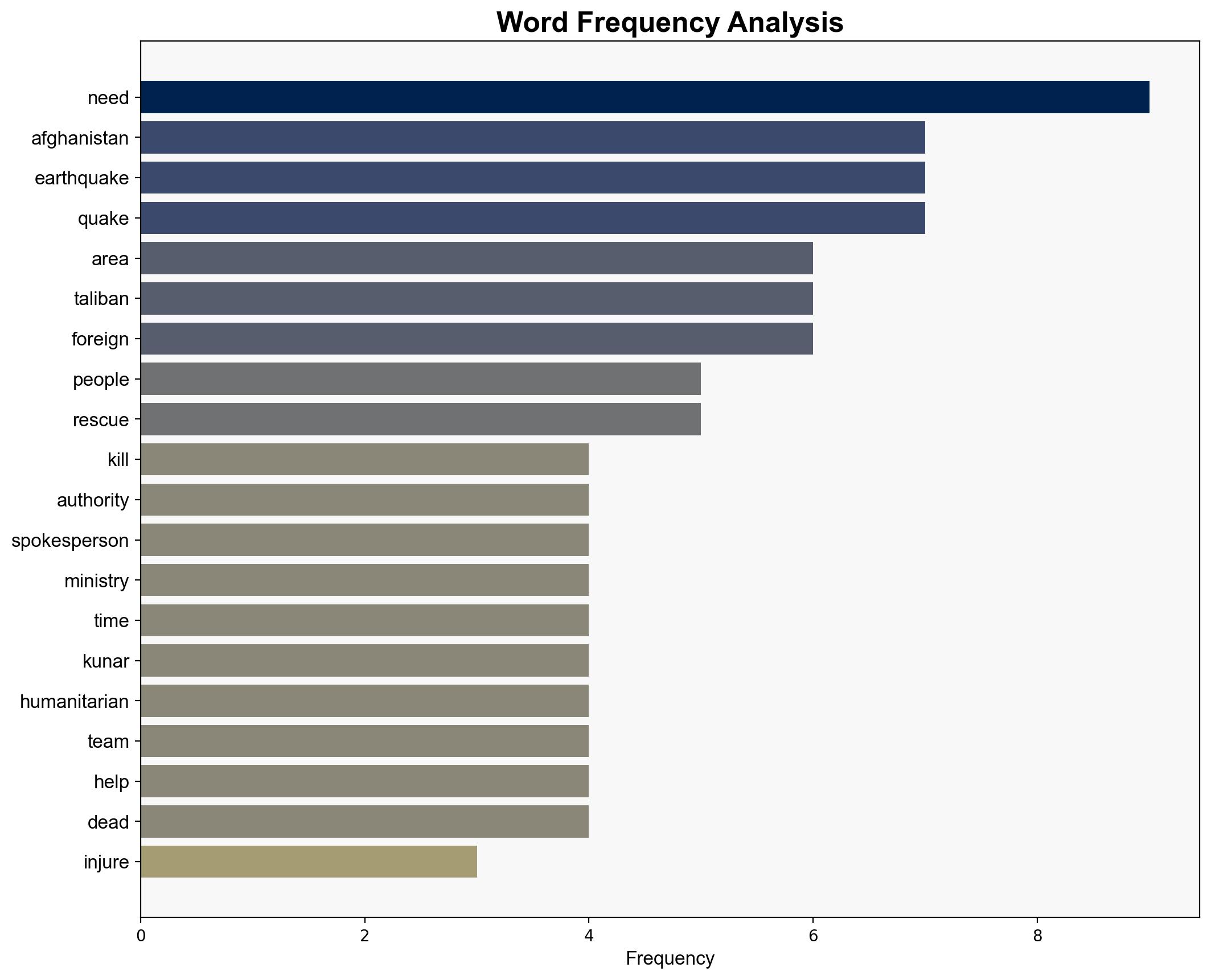Taliban asks world for help after Afghanistan earthquake kills 800 injures 2800 – Japan Today
Published on: 2025-09-01
Intelligence Report: Taliban asks world for help after Afghanistan earthquake kills 800 injures 2800 – Japan Today
1. BLUF (Bottom Line Up Front)
The most supported hypothesis is that the Taliban’s request for international aid is primarily driven by genuine humanitarian needs exacerbated by the earthquake, rather than a strategic ploy to gain international legitimacy. Confidence level: Moderate. Recommended action: International stakeholders should provide targeted humanitarian assistance while maintaining diplomatic pressure on the Taliban regarding human rights issues.
2. Competing Hypotheses
1. **Humanitarian Motivation Hypothesis**: The Taliban’s appeal for international help is primarily motivated by the urgent need to address the humanitarian crisis caused by the earthquake, given the severe impact on infrastructure and the population.
2. **Strategic Legitimacy Hypothesis**: The Taliban is using the earthquake as an opportunity to gain international legitimacy and potentially ease sanctions by portraying themselves as cooperative and open to foreign assistance.
Using ACH 2.0, the evidence of the Taliban’s immediate call for aid and the dire conditions supports the Humanitarian Motivation Hypothesis more strongly. The Strategic Legitimacy Hypothesis is less supported due to the lack of significant policy changes or concessions from the Taliban that would indicate a shift towards seeking legitimacy.
3. Key Assumptions and Red Flags
– **Assumptions**: It is assumed that the Taliban’s request is sincere and not a facade for other strategic gains. Another assumption is that the international community’s response will be based solely on humanitarian grounds.
– **Red Flags**: The Taliban’s historical reluctance to engage with international norms, especially regarding women’s rights, could undermine their appeal. The lack of transparency in aid distribution could also be a concern.
– **Missing Data**: Specific details on how the Taliban plans to distribute aid and ensure it reaches the affected populations are lacking.
4. Implications and Strategic Risks
– **Humanitarian Impact**: Failure to provide timely aid could exacerbate the humanitarian crisis, leading to increased mortality and morbidity.
– **Geopolitical Risks**: If the Taliban gains significant international support without policy changes, it may embolden them to maintain current policies, affecting regional stability.
– **Economic Risks**: Continued instability could deter foreign investment and aid, further crippling Afghanistan’s economy.
5. Recommendations and Outlook
- **Mitigation**: International aid should be conditional on transparent distribution mechanisms, with oversight from neutral entities to ensure aid reaches those in need.
- **Exploitation**: Use the situation to engage the Taliban on broader issues, leveraging aid as a means to encourage policy shifts.
- **Scenario Projections**:
– **Best Case**: Effective aid distribution leads to improved humanitarian conditions and opens dialogue on broader issues.
– **Worst Case**: Mismanagement of aid leads to further instability and strengthens the Taliban’s control without any policy changes.
– **Most Likely**: Short-term humanitarian relief is achieved, but long-term policy shifts remain elusive.
6. Key Individuals and Entities
– Sharafat Zaman
– Zabihullah Mujahid
– Ziaul Haq Mohammadi
– Abdul Maten Qanee
– Kate Carey
– Subrahmanyam Jaishankar
– Antonio Guterres
7. Thematic Tags
national security threats, humanitarian aid, geopolitical strategy, regional focus





